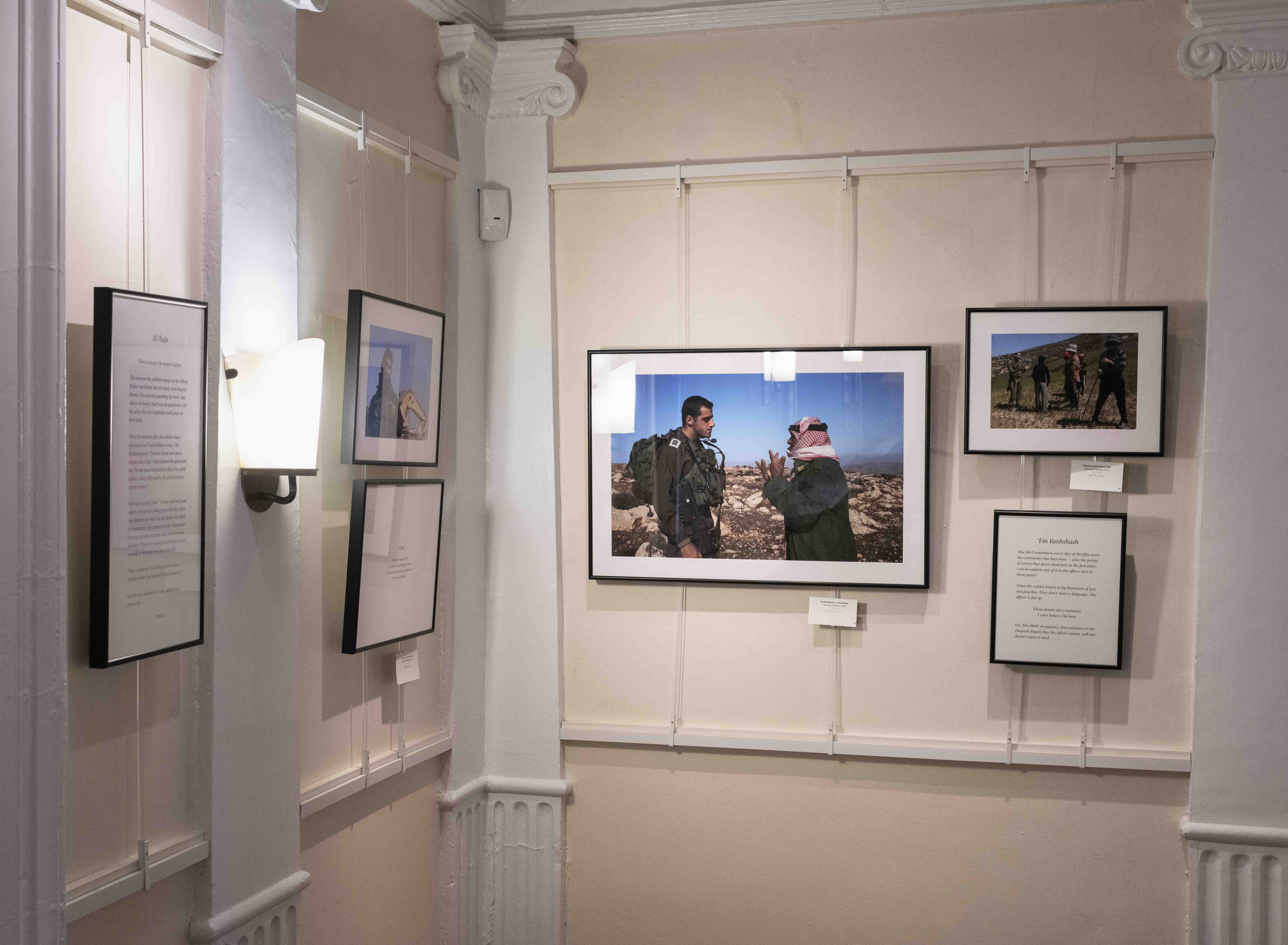
Yiming Zhang
Though Margaret Olin works in close proximity to soldiers, her only weapon is her camera.
Olin, a senior research scholar at Yale, and David Shulman, a professor at the Hebrew University, are showcasing the results of their journey in the South Hebron Hills and the Jordan Valley. Their exhibition — titled “Can Rocks Feel Pain?” — is on display at the Whitney Humanities Center from Jan. 13 to June 26. They went to these areas as members of Ta’ayush, a human rights organization active in Palestine. During the trip, they photographed soldiers, shepherds and farmers that they encountered.
“We want to show those who have not entered this world what it is like to live its reality,” states the exhibition’s accompanying booklet, co-written by Olin and Shulman. “To make palpable the experience of being transformed from a mere outsider to someone who, simply by being with these people, is implicated in their fate.”
The exhibition’s photographs and accompanying text chronicles the life of Palestinian farmers who live in areas occupied by the Israeli army. Olin and Shulman collaborated to produce the exhibit’s photographs and text, respectively.
The exhibition’s title — ”Can Rocks Feel Pain?” — comes from Shulman’s writing, referencing “the terrible things that happen in astoundingly beautiful surroundings,” Olin said.
A photographer trained in the Institute of Design in Chicago, Olin has long been interested in documenting the beauty she encounters.
“[Shulman] — in writing — and me — in both writing and photography — are interested in the idea of beauty and the significance of beauty as something whose value is emphasized by some kind of relationship that it almost always has with pain,” she said.
In Palestine, Ta’ayush activists stand between Israeli soldiers and Palestinian farmers and shepherds. The human rights group responds to individual requests for aid, and their positions are dangerous ones, Olin said. She added that group members sometimes dodge rocks and gunfire. She has been active with the group since May 2014, the same month when she started her blog, “Touching Photographs.”
Olin created the blog after she saw soldiers in heavy gear apprehend and question a farmer driving a tractor over a small field. According to Olin, the soldiers told her that they had recently arrested two young girls who were picking cherries and brought them to the police station.
“I’d felt like I landed in some strange country, a very bizarre place, and I was completely hooked,” Olin said.
Olin and Shulman’s exhibition aims to challenge people’s understandings of the Israeli-Palestinian conflict.
“It’s a chance for moral reflection, political reflection,” said Mark Bauer, an associate director of the WHC. “I think they’re wonderfully understated, and they draw the viewer in so that you really begin to sense what these lives are like in this really rugged landscape,” Bauer added about the photographs and their accompanying texts.
Olin noted, however, that she does not expect the exhibition will radically alter viewers’ opinions on the Israeli-Palestinian conflict. Rather, she hopes the visuals challenge people’s assumptions of Palestinians and encourage them to think further about the conflict.
Uriel Cohen, executive director of the Joseph Slifka Center for Jewish Life at Yale, said that though he has not personally seen the exhibition, he encourages people to take their time in engaging with the nuance in the Israeli-Palestinian conflict. Though the clash is at the forefront of international discourse, Cohen noted that it often can be difficult to deal with, prompting onlookers to resort to oversimplification.
“In all of our efforts to do the most we can to raise up human dignity we must perform rigorous due diligence to understand both what that dignity means to those involved and determine what such human dignity requires of all of us,” Cohen wrote in an email to the News.
Olin and Shulman plan to craft a photographic book on this topic.
Rose Horowitch | rose.horowitch@yale.edu







